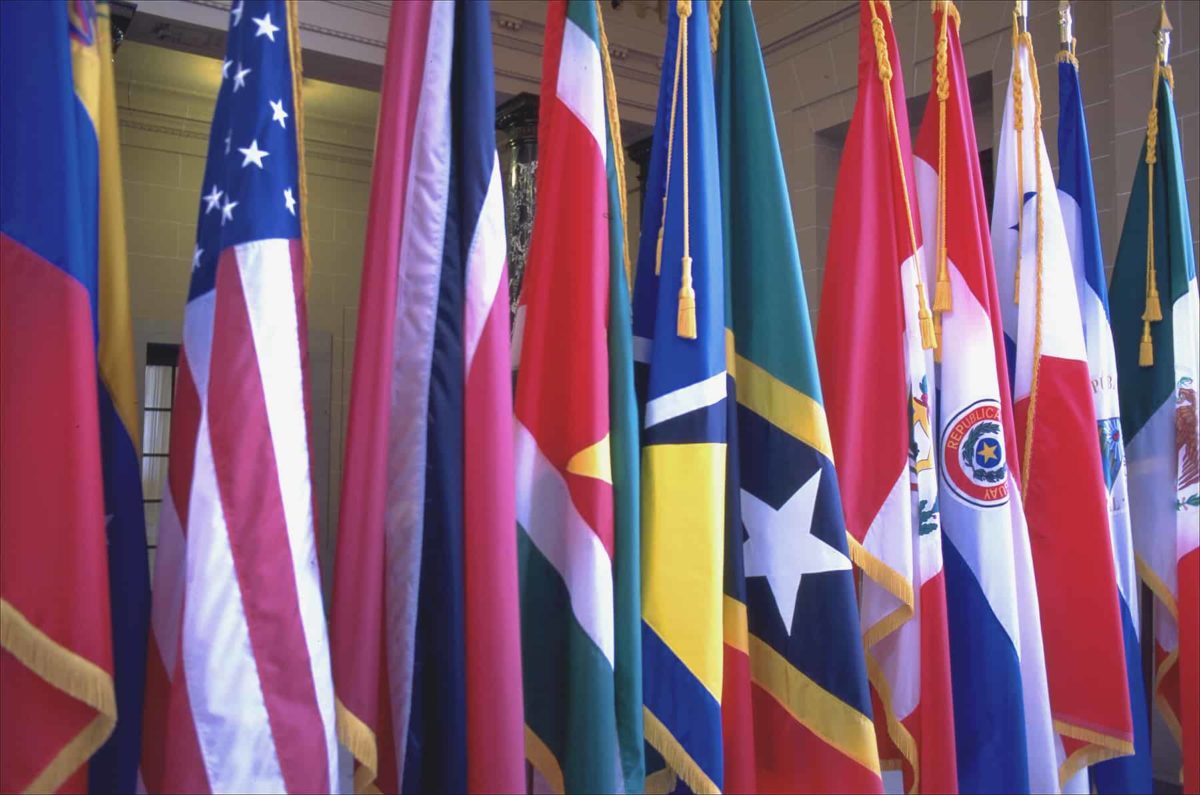Latin American countries called for a peaceful solution and reacted with some nuances to the conflict in Ukraine. Mexico and Brazil are the two countries represented on the UN Security Council, which is closely monitoring developments in the conflict.
Mexico
Mexican President Andrés Manuel López Obrador affirmed Thursday that his country’s foreign policy will continue to “promote that there be dialogue, that there be no use of force, that there be no invasion.”
“We are not in favor of any war, Mexico is a country that has always stood for peace and for the peaceful settlement of disputes,” he added.
According to Foreign Minister Marcelo Ebrard, “Mexico’s position has been very clear, both in the previous stage and as of last night, and it will continue to be so. We are going to be very clearly against the use of force, against calling into question the integrity of an independent country which is Ukraine, in favor of the resolutions of the United Nations, in favor of the appeal and the position of the Secretary General of the United Nations”.
Brazil
Brazil noted that it “accompanies with grave concern the deflagration of military operations” by Russia and appealed for “the immediate suspension of hostilities,” according to a statement from the foreign ministry.
President Jair Bolsonaro on Thursday night avoided criticizing Russia. In a message on social networks he said that his government “is interested in deepening its friendly and commercial ties with other countries” and cited Russia, Ukraine and Hungary equally.
In contrast, Brazil’s Vice President Hamilton Mourao told the press that “Brazil does not position itself as neutral. Brazil made it very clear that it respects Ukraine’s sovereignty. So, Brazil does not agree with an invasion of Ukrainian territory”.
Argentina
The Casa Rosada rejected “the use of armed force”, “therefore calls on the Russian Federation to cease military actions in Ukraine”, and asked to respect the UN Charter and to act with “the utmost prudence” in order to de-escalate the conflict.
Colombia
Colombian President Ivan Duque rejected on Twitter “the premeditated and unjustified attack perpetrated against the Ukrainian people by Russia.”
“It not only attacks their sovereignty but threatens world peace,” he added.
In Ukraine live 68 Colombians and 28 foreigners who are part of their families. The government announced diplomatic steps to “facilitate” their “exit from Ukrainian territory”, according to a statement by Duque from the presidential headquarters in Bogota.
Chile
Chilean President Sebastián Piñera issued a statement on his social networks stating that the country “condemns Russia’s armed aggression and its violation of Ukraine’s sovereignty and territorial integrity. These acts violate international law and threaten innocent lives, peace and international security.
Chile urges Russia to respect the Geneva Conventions on international humanitarian law. We will collaborate with other countries to seek a peaceful solution to the conflict, within the framework of international law and the United Nations Charter”. According to the Chilean Foreign Ministry there are at least 53 Chileans in different cities of Ukraine.
Venezuela
“Venezuela rejects the worsening of the crisis in Ukraine as a result of the breach of the Minsk agreements by NATO”, tweeted the socialist President Nicolás Maduro, echoing an official statement.
The statement “calls for resuming the path of diplomatic understanding through effective dialogue between the parties involved in the conflict to avoid an escalation.”
On Tuesday, Maduro said that “Venezuela is with Putin, is with Russia, is with the brave and just causes of the world”.
After the announcement of Russia’s “military operation”, the considered number two of Chavismo, Diosdado Cabello, expressed his wish that “there will be no war”.
The Minister of Communication, Freddy Ñáñez, wrote on Twitter that “the objective of the operation is to protect people who have been abused and genocided by the neo-Nazi regime for eight years”, in tune with the Kremlin’s discourse.
Ecuador
“Ecuador believes in multilateralism and is willing to respect and support the decisions made by the Security Council” of the UN, said the country’s president, Guillermo Lasso, on Thursday.
“We reject any act of war that puts the civilian population on alert,” Foreign Minister Juan Carlos Holguin wrote on Twitter earlier.
Some 700 Ecuadorians are in Ukraine.
Peru
In a tweet from its Foreign Ministry, Peru expressed its deep concern about the evolution of events in Ukraine, rejected the use of force and reiterated its call to cease all hostilities and ceasefire violations in Ukraine.
Nicaragua
Nicaraguan President Daniel Ortega said that his country expressed “to the people of Russia, to (Russian) President (Vladimir) Putin, our solidarity and our encouragement in this struggle being waged by the Russian people for peace”, while addressing the Speaker of the Duma (Lower House of Parliament), Vyacheslav Volodin, present in Nicaragua after visiting Cuba.
Cuba
President Miguel Díaz-Canel, who met with Volodin in Havana on Wednesday, later expressed “his solidarity with Russia, in the face of the imposition of sanctions and the expansion of NATO towards its borders”.
Honduras
The Foreign Ministry “expresses its deep concern over Russia’s military operation in Ukraine, and calls for a return to respect for the principles of International Law that are the essence of peaceful coexistence between States, while expressing its categorical rejection of the use of force that would provoke an armed escalation International generated by the situation in Ukraine.
Honduras ratifies its call for a political solution to the conflict in Ukraine”.
Guatemala
Guatemala in a communiqué expressed “its deep concern over the invasion of the armed forces” of Russia “into the sovereign territory of Ukraine, joining “the global condemnation of this unjustified act that threatens the lives of hundreds of thousands of people”.
Paraguay
President Mario Abdo said on his Twitter account on Thursday that “the Paraguayan government condemns the attacks on the Ukrainian people, in violation of the principles of sovereignty and international law and urges the aggressors to stop their actions calling for dialogue for peace and world stability”.






